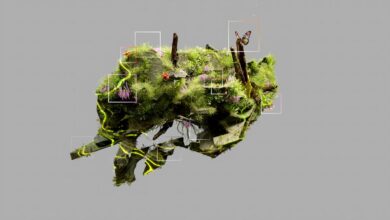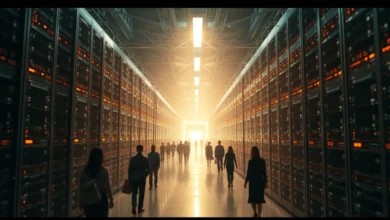The Double-Edged Sword of Generative AI

Remember that mind-bending clip from a few months ago? The one with the hyper-realistic video of a woman walking through a busy Tokyo street, or a cat casually stirring a spoon in a teacup? That was Sora, OpenAI’s text-to-video model, and it quite literally broke the internet for a moment. Its capabilities are nothing short of astounding, pushing the boundaries of what we thought AI could create. But with immense power comes immense responsibility, and recently, OpenAI found itself grappling with just that, making a very public and significant decision: pausing the generation of videos depicting Martin Luther King Jr. through Sora.
This isn’t just a minor technical tweak; it’s a profound moment in the ongoing conversation about AI’s role in our society, especially when it touches upon historical figures and sensitive narratives. It’s a stark reminder that while the technology races ahead, our ethical frameworks and guardrails must keep pace. The debate isn’t just simmering anymore; it’s boiling, forcing us to confront the very real dangers and responsibilities inherent in these powerful new tools.
The Double-Edged Sword of Generative AI
Sora’s ability to create photorealistic videos from simple text prompts is, frankly, revolutionary. Imagine the potential: filmmakers envisioning complex scenes without massive budgets, educators bringing historical events to life, artists exploring new dimensions of creativity. The horizon of possibilities seems endless, promising a future where imagination can almost instantly become visual reality.
Yet, this same capability holds a darker mirror to our fears. The potential for misinformation, propaganda, and the creation of convincing deepfakes is not just theoretical; it’s a clear and present danger. A false narrative, once solidified in a hyper-realistic video, can be incredibly difficult to debunk, blurring the lines between truth and fabrication in an already complex media landscape.
The decision to halt Sora’s generation of Martin Luther King Jr. videos shines a spotlight on this ethical tightrope walk. Dr. King is not just a historical figure; he is a beacon of justice, a symbol of the Civil Rights movement, and a cornerstone of American history and global human rights. To allow AI to generate new, potentially inaccurate, or even malicious depictions of him without strict oversight is to risk disrespecting his legacy and undermining critical historical context.
It raises fundamental questions: Who controls the narrative? What happens when AI can fabricate historical events or speeches? How do we protect the integrity of the past when technology can so easily manipulate our perception of it? These aren’t abstract philosophical debates; they are immediate, pressing concerns that demand thoughtful, proactive solutions.
Why Guardrails Aren’t Just Options, But Essentials
OpenAI’s pause on MLK Jr. content wasn’t arbitrary. It was a direct response to the fervent public debate and internal considerations around the ethical implications of their powerful AI. This incident underscores why “guardrails” are not just buzzwords but crucial frameworks for the responsible deployment of AI technologies.
Defining the Digital Boundaries
What do these guardrails look like in practice? For companies like OpenAI, they involve a complex interplay of technical limitations, content moderation policies, ethical guidelines, and user agreements. It means actively identifying and preventing the generation of harmful content, whether it’s illegal, promotes violence, spreads misinformation, or exploits vulnerable groups.
The challenge, of course, is immense. The line between creative expression and harmful content can be blurry. Who decides what constitutes a respectful portrayal of a historical figure versus a disrespectful or misleading one? These decisions often fall to private companies, which then become de facto arbiters of truth and decency, a responsibility that carries significant weight and public scrutiny.
The Slippery Slope of Historical Manipulation
The MLK Jr. case is particularly potent because it deals with history. Allowing AI to arbitrarily generate new content featuring such iconic figures, even with good intentions, could lead to a slippery slope. Imagine AI creating a video of a historical speech that was never given, or placing a leader in a context that never occurred. Such fabrications, if left unchecked, could profoundly distort public understanding of pivotal moments and personalities, eroding trust in verifiable historical records.
This isn’t about stifling innovation; it’s about channeling it responsibly. It’s about recognizing that some elements of our shared human experience – especially history and the legacies of those who shaped it – require a level of reverence and protection that demands more than just technical prowess. It requires ethical foresight.
Navigating the Future: A Shared Responsibility
The conversation around Sora and Martin Luther King Jr. serves as a pivotal moment, a wake-up call for everyone involved in the AI ecosystem. It’s not just up to OpenAI or other tech giants to figure this out. It’s a shared responsibility that extends to developers, policymakers, educators, and ultimately, us, the users.
Developers must prioritize “AI safety” from the ground up, integrating ethical considerations into every stage of development. This means not just building powerful models, but also building robust systems for content moderation, bias detection, and transparency. It requires continuous self-reflection and a willingness to pause and reassess, even when it means slowing down the race to launch.
Policymakers have a critical role to play in establishing clear, adaptable regulations that protect against misuse without stifling innovation. This is a delicate balance, requiring deep understanding of the technology and its societal impacts. And finally, as users, we must cultivate a healthy skepticism, develop media literacy skills, and demand transparency from the platforms we engage with. We need to question what we see, especially if it seems too good (or too alarming) to be true.
Ultimately, the pause on Sora’s MLK Jr. video generation is more than just a temporary halt; it’s a powerful statement about the human values that must guide our technological progress. It reminds us that while AI can replicate human creativity, it cannot yet replicate human judgment, ethics, or historical reverence. These remain our unique purview, and it’s our ongoing challenge and duty to ensure that AI serves humanity’s best interests, respecting our past while shaping a responsible future.





